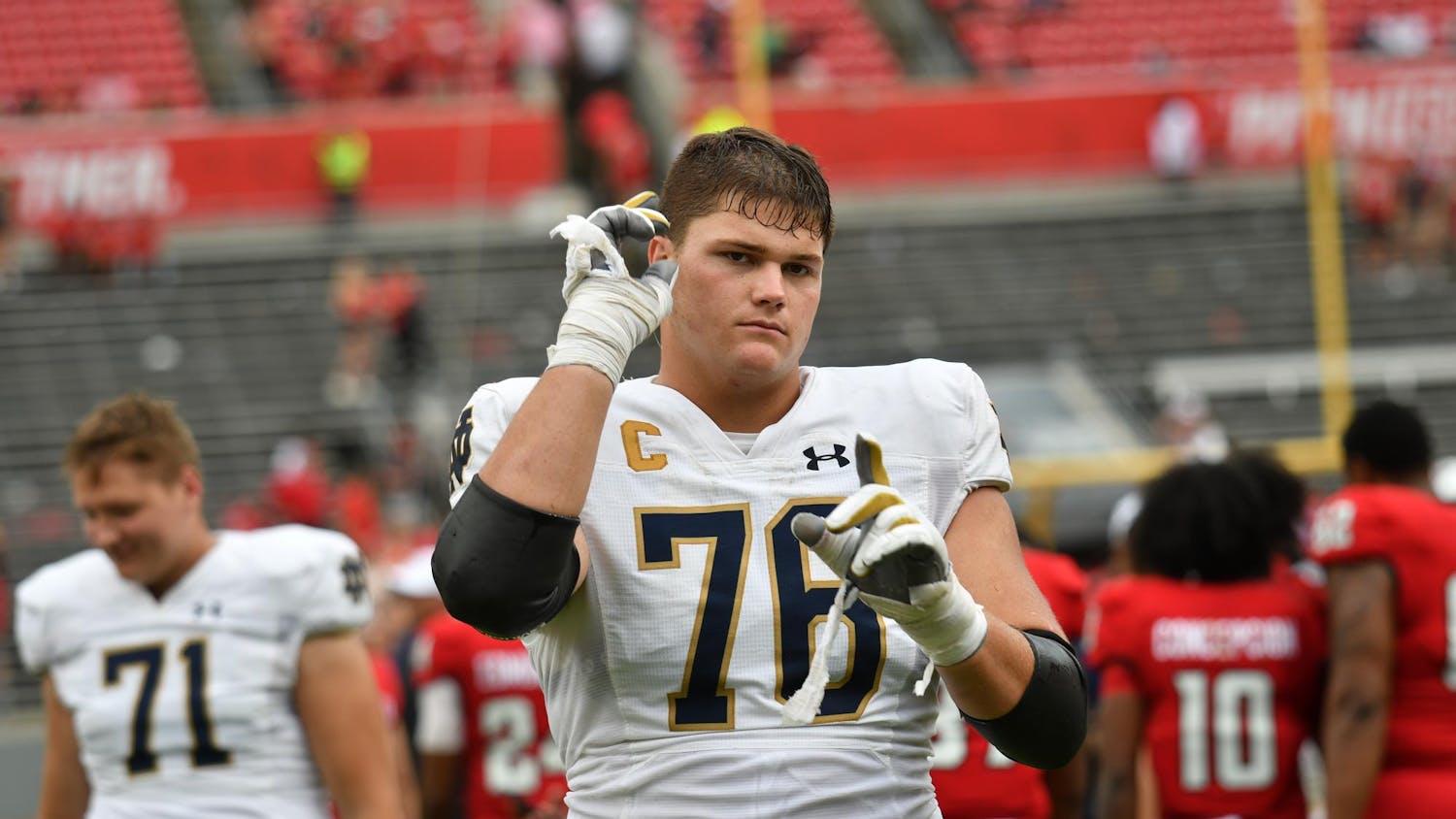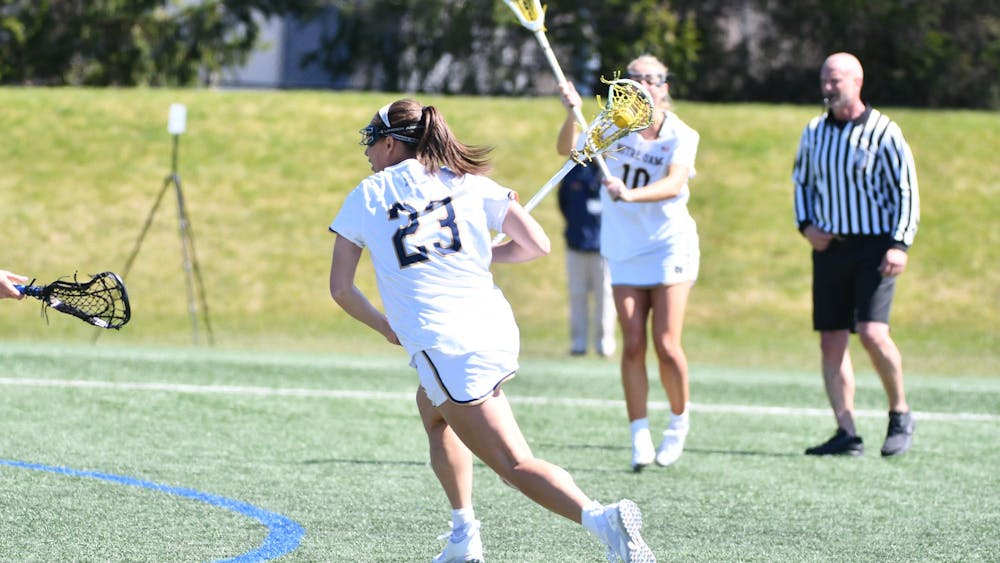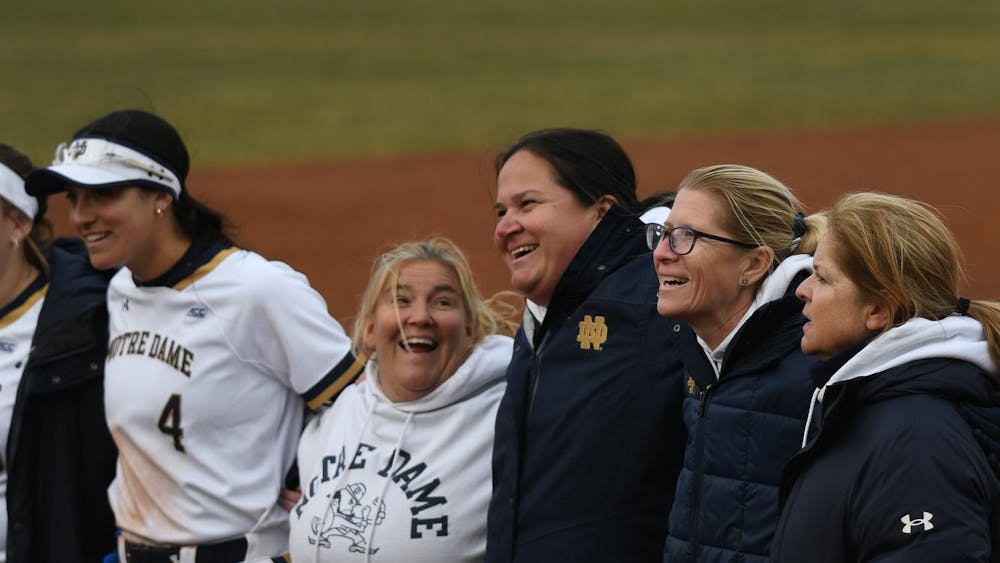The annual battle between Notre Dame and USC goes by many names — The Battle for the Jeweled Shillelagh and the greatest intersectional rivalry game in college football among them — but let's call it what it really is: an all-or-nothing proposition. There are no moral victories in a rivalry game.
To our 80,000 fans in attendance Saturday night, nothing mattered more than the action on the field and the year of bragging rights at stake. Before I left for a semester abroad, it was inconceivable to me that there could exist any loathing greater than a Notre Dame fan feels for USC, or the similar hate exchanged in the Ohio State-Michigan and Auburn-Alabama rivalries.

It only took a month in London for me to realize how wrong I was. There exists a type of rivalry that cuts through more than just allegiance and divides neighborhoods, households, religions and ethnicities — the derby. To put the derby in perspective, imagine if USC was situated just down the road on the other side of South Bend. On top of that, picture the Irish and the Trojans in the same conference, playing each other at least twice a season. In essence, that's a derby.
There are countless versions of these rivalries contested across Europe, but early in October I took in the famous North London derby between Arsenal and Tottenham Hotspur at an Arsenal-heavy sports bar. The atmosphere absolutely blew me away, and the passion of the fans is one you have to see to believe. To walk into that bar with a Tottenham jersey on would not just be stupid, but downright dangerous. The game ended 2-1 in favor of Tottenham on a late goal that was mishandled by Arsenal goalkeeper Wojciech Szczesny. Sorrow reigned in the bar, accompanied by more than a couple of pints ordered from the tap.
The eerie silence of a defeated group of Arsenal fans reminded me of the sound (or lack thereof) heard in the Notre Dame student section after close losses in rivalry games — most notably against USC in 2009 and Michigan in 2010. But the beauty of the English derby is the despair of the Arsenal fans went deeper than just a loss on their record and the shame of watching their hated rivals celebrate.
The Arsenal fans — the ‘Gooners' — would return home to be greeted by their Tottenham co-workers, their neighbors and in some cases even their spouses. They knew full well that the loss meant they were in for several long months until the next North London derby on Feb. 25, 2012.
Only in a country as small as England with as many competitive teams playing could rivalries of such intimacy be contested. We lose this in the given expanse of the United States. Only Duke and North Carolina's Tobacco Road rivalry comes even close to the geographic proximity that English football engenders. Across the Isle of Great Britain, rivalries like Manchester City-Manchester United, Liverpool-Everton, Rangers-Celtic (in Scotland), Queens Park Rangers-Chelsea and Newcastle United-Sunderland feature teams whose stadiums are but mere minutes from each other.
Even U.S. regional rivalries like Ohio State-Michigan and Stanford-Cal would be distant by European standards. It is, at the very least, interesting to consider how these classic American rivalries compare to their English and mainland European counterparts.

American college football has elements English rivalries could never duplicate as well. The connection one feels with their alma mater or current university is uniquely personal; no English soccer fan can claim any truly personal connection to their club unless they are an employee or an ex-player. It creates a similarly intense, but overall entirely different attachment associated with rivalries on our side of the Atlantic.
Whether you witness a magnificent American college rivalry game or a buzzing English derby, several things are clear: Rivalries are intense, dramatic, passionate, exhilarating and, if the result goes against you, emotionally crushing. Of all the beautiful aspects of sport, the joy of a good rivalry is perhaps the most universal, from the football grounds in England to our House That Rockne Built.












